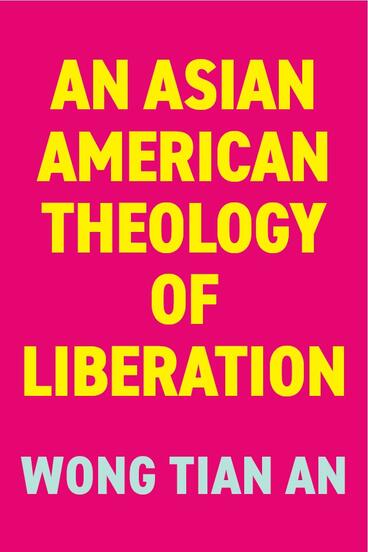An Asian American Theology of Liberation
Offers foundations for a new generation seeking to reconcile faith and politics without compromise
Description
What does liberation mean for Asians at the core of an anti-Black, settler-colonial empire? This landmark book is the first to offer an Asian American theology of liberation for the present and future global crises. The broad scope of contemporary ideas that the book engages with will be of interest to students, activists, clergy, and scholars alike. Readers interested in radical politics, political theology, and Asian American history will find this book an important addition to their bookshelves.
Providing an intersectional frame that considers the breadth and diversity of Asian American experiences alongside those of Black, Indigenous, and Latinx thinkers in the United States and across the globe, An Asian American Theology of Liberation puts Asian American theology in dialogue with theories from psychoanalysis, Afro-pessimism, Black Marxism, postcolonial studies, and queer theology. In this groundbreaking work, Wong Tian An combines archival research uncovering a much overlooked theology of liberation — born in the 1970s out of Asian Americans’ struggles for political recognition and civil rights in the United States — with powerful analyses drawing from the theological, intellectual, and political developments of the last half century.
This wide-ranging study connects urgent themes such as protest movements in Hong Kong, anti-Asian violence in the United States, and Indigenous struggles everywhere, while building on Asian theologies such as Dalit theology in India, theology of struggle in the Philippines, and Minjung theology in Korea. Drawing deeply and broadly across disciplines, the book altogether revives and renews an Asian American theology of liberation for a new generation.
Wong Tian An lives in Detroit and is Assistant Professor at the University of Michigan-Dearborn.
Reviews
“This book really is a kind of manifesto: an Asian American theological call to revolution, a revolution in decolonial thinking and practice. In that way, this book proposes what such a revolution would look like if the heterogeneity of Asian American experience were to be given central billing."
- Ki Joo Choi, Princeton Theological Seminary
“This book demonstrates a wide array of learning, and understands the breadth of literature both in Asian American theology but also more broadly in critical race theory, Christian theology, and the relevant intersections. The book engages nearly every major figure and engagement of recent years. Admittedly Asian American theology is a small and growing field, but Wong Tian An seems to know all of it, and handles the material with dexterity.”
- Jonathan Tran, Associate Professor of Theology, Baylor University
“Wong Tian An is constructing an Asian American liberation theology: one that seeks to retrieve the radical spirit of the work of the first generation of theorists of the 1960s and 1970s (e.g., Roy Sano, Paul Sano), is in conversation with other liberation theologies in the U.S. and across the globe, and is accordingly antiracist, decolonial, feminist, queer, and neither given to ‘respectability’ (middle class AA norms of ‘model minority’ aspirations) nor setter theology.”
- Grace Yia-Hei Kao, Professor of Ethics and Bishop Roy I. Sano and Kathleen A. Thomas-Sano Professor of Pacific and Asian American Theologies at Claremont School of Theology
"Wong Tian An has offered the Asian American church, and to the church at large, an unfathomable gift."
- Luna Kim Yeh and Joshua E. Livingston, The Englewood Review of Books
“Wong works their way through a host of issues and considerations for integrity in An Asian American Theology of Liberation. Because their knowledge of issues and authors are literally global, they engage voices in religious and secular scholarship from the North and South, East and West.”
- Roy I. Sano, Retired Bishop of The United Methodist Church
News, Reviews, Interviews
Read: Englewood Review of Books | April 17, 2024


